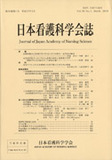Japanese
English
- 販売していません
- Abstract 文献概要
- 参考文献 Reference
1.はじめに
女性にとって出産体験は母親としての自己概念が発達する上できわめて重要な体験であると思われる.
多くの母親は,産後2~3日頃に出産を想起しながら出産体験を統合し,意味づけ,母親としての自己概念を確かなものにしていくRubin1).
出産評価尺度の研究は,米国で盛んに行われてきた.Samko2)は,出産に対する態度(肯定的,否定的)を測定する15項目からなる尺度を作成した.この尺度はラマーズクラスを受けた42名を対象に調査が行われている.信頼性・妥当性の検討はなされていない.Ramona3)は,Samkoの研究をもとに29項目の尺度を開発し,それは尺度得点が高いほど出産体験の肯定的認識度が増すように設計されており,構成概念妥当性と信頼性(Cronbach's α=.87)が確認されている.Sharron4)は,Masteryの概念を基本にして出産体験の満足度を測定する3つの出産経験の評価尺度(Labor/Delivery Evaluation:Cronbach's α=.91,Labor Agency:Cronbach's α=.88,Delivery Agency:Cronbach's α=.89)を作成した.Ellen5)は,陣痛・出産時の対処,達成感を測定する「LaborAgentr y Scale」を作成した(Cronbach's α=.94).
Jonathan6)は,産婦の満足度を測定するために16項目の技術的要素と,23項目のケア的要素から構成されるLabor Delivery SatisfactionIndex(LADSI)を開発した.Jacqelime7)は,RoyAdaptation Modelを基本概念として出産体験の認識を測定するPerception of Birth Scale(25項目)を作成した.この尺度は,「Delivery Experience」,「Labor Experience」,「Delivery Outcome」,「Partner Participation」,「Awareness」の5つの因子から構成されている(Cronbach's α=.87~.59).
それらのスケールを日本語に訳して調査するには文化の違いから解釈が困難な場合もあると判断して本研究では使用しなかった.わが国における出産経験の評価研究では,我部山ら8)が,出産体験を形成する因子が網羅されている46項目の質問紙を作成している.しかし,評価道具としての質問紙の検討はなされていない.三枝9)は,17項目から構成される「出産体験とらえ方尺度」を作成した.(Cronbach's α=.84).この尺度は「私にとって出産経験は,」の文章完成法テストの内容分析の結果を基に質問紙が作成されている.内容分析の信頼性については明らかにされていない.
遠藤10)は,自己評価の規定要因として自己の価値意識をあげている.このことは,出産体験についてどのような価値意識を持っているかによって母親の自己評価が左右されることを意味している.そこで,尺度開発に当たり自己評価理論11)に加えてSchwartz12)のuniversal valuetheoryを用いた.Schwartzは,1988~1992年に,20カ国,40首都圏の大学生から一般成人200~300人ずつを対象に,価値タイプを調査し,ガットマン-リンゴース最小空間分析(SSA)を使って,異なる文化圏でも比較可能な10の価値タイプ(Figure1)を提唱した.この調査には日本人2,692名も含まれている.出産は文化的背景要因の影響を強く受けるため,Schwartzの価値タイプの概念を適用することにより,個々人の出産体験の自己評価における価値意識を考慮に入れた尺度の開発が期待できると考えた.
<用語の定義>
・出産体験:分娩開始から児娩出後2時間までの経過の中で産婦の情緒を伴った体験.
・自己評価:自己の価値と能力について自分自身についての感情.
Abstract
In this study, the author designed the self esteem scale for experience of delivery and surveyed the self esteem of mothers for their experience of delivery to study the scale's reliability and validity.
The subjects were 235 mothers in puerperal stage between 1st and 14th day after delivery. This is the questionnaire survey on self esteem of delivery. The words collected in Study 1 were used in designing the questionnaire based on 10 value types of universal value theory of Schwartz (1992). There were 54 questions in the questionnaire. The answers to these 54 questions were processed using three factor analyses (principle factor analysis varimax) to extract significant 35 items to design the self esteem scale for delivery experience. The fourth factor analysis help the author extract four stable factors (“done well myself”, “satisfactory with both mother and child being well”, “presence of reliable obstetric staff” and “awareness as a mother”)
Each αcoefficient was between 0.91 to 0.71, indicating high internal consistency and reliability. It is highly correlated with four factors resulted from the correlation with the self-esteem scale, confirming the validity of the constituent concept.
Copyright © 2000, Japan Academy of Nursing Science. All rights reserved.


